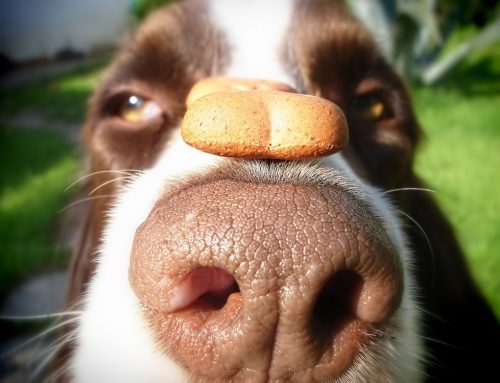Senior pets hold a special place in our hearts. But, who classifies as a senior pet? In general, a dog or cat who has reached 7 years of age is considered senior. This may shock some pet owners, but pets age much more quickly than people. In fact, a large, 8-year-old dog is roughly the equivalent of a 65-year-old person. Unfortunately, with age comes an increased incidence of disease, mobility problems, sensory loss, and other issues, leaving pet owners and their veterinarians to manage these sometimes complicated cases. The term “geriatric” is often used to describe these fragile, aging pets.
Routine veterinary visits are critical during this delicate time in your pet’s life. Dr. Cagle is trained to pick up on subtle signs of pain, cognitive dysfunction, and other changes in your senior pet that may not be obvious. When you visit our clinic, ensure you bring a detailed account and timeline of your pet’s signs to help our veterinary team accurately diagnose and decide on an appropriate treatment plan. The following are some examples of discussions regarding your senior pet.
Pets and preventive care
Preventive care, which should start at a young age, emphasizes keeping pets healthy by routinely preventing and screening for disease, and is essential throughout your pet’s life. Preventive care for senior pets commonly includes:
- Biannual examinations — While adult pets should visit the veterinarian yearly, senior and geriatric pets require more frequent monitoring. Your aging pet may appear healthy, but you should still ensure she is examined twice yearly.
- Laboratory work — Blood and urine testing is necessary to monitor your pet’s internal functioning, which can change rapidly with age. Typically, we recommend these tests once or twice a year, but certain pets need more frequent testing.
- Parasite prevention — Intestinal parasites, fleas, ticks, and other bugs don’t discriminate based on age. All pets should receive routine deworming, and heartworm, flea, and tick prevention.
- Vaccinations — In general, all pets should remain up-to-date on their core vaccines and any vaccines pertinent to their lifestyle. However, vaccine recommendations can change as pets age. Dr. Cagle can help you decide on an appropriate vaccine protocol for your senior pet’s individual needs.
Common age-related diseases in pets
While age itself is not a disease, it often correlates with a variety of health problems. Depending on your pet’s clinical signs and laboratory findings, our veterinary team may discuss with you the following diseases commonly seen in older pets:
- Osteoarthritis
- Dental disease
- Thyroid disease
- Chronic kidney disease
- Cognitive dysfunction
- Cancer
Signs in senior pets to monitor at home

A large part of diagnosing and treating age-related diseases in pets is at-home monitoring. Dr. Cagle and our veterinary team count on pet owners to closely monitor their pets for any behavioral or physical changes, so that they can make appropriate recommendations. Ensure you report any of the following signs to our team:
- Increased or decreased appetite
- Difficulty chewing or food falling from the mouth
- Increased drinking and urination
- Incontinence
- Difficulty rising, climbing stairs, or walking on slick floors
- Unwillingness to go for walks or play
- Attitude changes, such as increased aggression or apathy
- Standing in corners
- Bumping into walls
- Disorientation
Quality of life for aging pets
As our pets age, their quality of life is of the utmost importance, yet seldom is it as simple as knowing when “it’s time.” By closely monitoring for changes at home and using scoring tools like this one, you and Dr. Cagle can be prepared to discuss your pet’s quality of life and make the best decisions for your pet and your family.
Do you have questions about your senior pet, or need to schedule her semi-annual examination? Contact us to chat, or to set up an appointment.







Leave A Comment